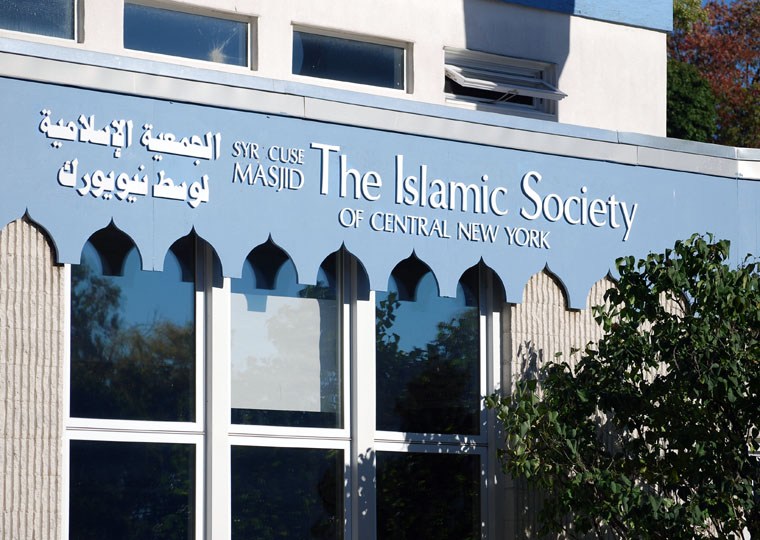Women Transcending Boundaries met at the Islamic Society of Central New York where, upon their arrival, women were given a brief tour of the masjid (mosque). Three women then presented their understanding of the concept of redemption from their own faith perspective.
Islam—Danya Wellmon
Danya explained some of Islam’s teachings about redemption:
• Salvation comes from faith and works.
• Angels record one’s good deeds and one’s bad deeds.
• Muslims do not believe in original sin.
• There are no intermediaries between God and humans.
Judaism—Jeanette Powell
Jeanette shared her understanding of redemption from the Jewish perspective. Among the things she noted were:
• The stories of the Exodus and of Passover are stories of redemption.
• God gives persons the chance to renew themselves.
• Both God and humans have a part in salvation. Humans must take action; they must respond.
• God forgives, but humans must act as well by changing their ways. There is no quick forgiveness.
Christianity—Marilyn Wolfe
Marilyn noted stories of redemption from the Christian scripture:
• The parables of the lost coin, the lost sheep, and the lost son show a God who seeks and saves the lost.
• The story of the conversion of Paul, and the Christians who then welcomed him, shows teachings about the Christian community taking action and making things right.
• The scripture includes stories of redemption where people who have been estranged come together.
• God forgives, but humans must act as well by changing their ways. There is no quick forgiveness.
Sharing
The women divided up into small groups of five to seven each. Core Group members served as facilitators using a process developed for interfaith dialogue by the InterReligious Council of Central New York. The facilitators began by outlining ground rules related to confidentiality, careful listening, and full participation. Phyllis Berman, who had trained the Core Group leaders, monitored the process, moving from group to group.
Although the questions in each group differed, some examples included: What is positive about being a woman—or a Muslim, Jewish, or Christian woman? What was it like in your family to learn about your religion? What was it like in your family to learn about other religions? Have the things you have learned helped or hindered you in your life?
The groups concluded with most of the attendees noting that they would like to continue the small-group sharing once a month at the general meetings.

